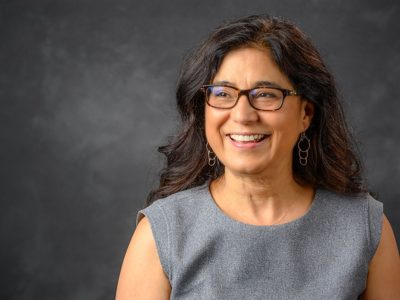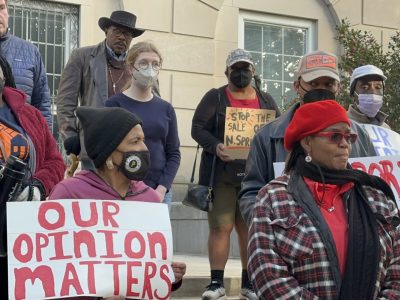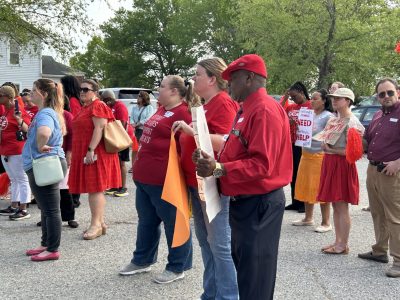by Jordan Green
The specter of Marcus Brandon looms over the Democratic primary in state House District 60, where two candidates recognize the necessity of making compromises with the Republican supermajority in Raleigh to get something done for constituents in High Point and Greensboro.
Earl Jones’ political rise has been successively thwarted by electoral upsets.
Jones’ tenure as a member of Greensboro City Council was ended by Belvin Jessup in 2001. Jessup himself was defeated as a one-termer in turn by Dianne Bellamy-Small. She represented District 1 on council for a decade, while publicly and frequently feuding with Jones. After his reelection defeat, Jones consoled himself by winning a seat in the state House. He represented District 60, a majority black district that covers parts of Greensboro and High Point, until Marcus Brandon came along in 2010 and interrupted his legislative service.
Now, Jones is facing Bellamy-Small’s son, David Small, in his bid to retake the District 60 seat, while Brandon seeks higher office in his run for the 12th Congressional District position vacated by Mel Watt thanks to a federal appointment. But Jones’ past squabbles with Bellamy-Small have faded over the years, compared with his more recent acrimony with Brandon. And so Jones seems to be taking it more personally that Brandon’s former campaign manager, Cecil Brockman, is also making a run for the seat.
The 29-year-old Brockman said Brandon had been urging him to run for about two months, and that he had gone back and forth. He finally made up his mind the day before the filing period closed, after receiving a phone call from High Point Mayor Bernita Sims.
“She said, ‘I really want you to run,’” Brockman recalled. “‘We need High Point representation.’” Brockman, a High Point native who interned with the Democratic National Committee and worked on Elaine Marshall’s unsuccessful 2010 US Senate campaign, joined Brandon as a legislative assistant and went on to manage his reelection campaign in 2012. It was a rematch with Earl Jones.
Brockman noted with pride that Brandon, who is openly gay, carried every single precinct in the 2012 primary despite the district as a whole voting in favor of the marriage amendment, which enshrined a restriction against same-sex marriage in the state constitution. “It didn’t hurt,” Brockman added, “who he was running against.”
Jones charged that money from conservative interests helped Brandon win that election.“The election was pretty much bought and paid for,” Jones said. “He sold out to Art Pope and the conservatives. He got thousands of dollars from Americans for Prosperity — thousands of dollars from groups that are detrimental and injurious to working people in the district.”
An electioneering communications report filed with the state Board of Elections by Americans for Prosperity reflects that the non-profit 501(c)4 organization spent $5,100 for a direct-mail piece on Brandon’s behalf on the eve of the 2012 primary to highlight the candidate’s support of educational choice. Americans for Prosperity is funded by the billionaire Koch brothers, along with Variety Wholesalers, a North Carolina retail chain that funds a vast political apparatus used to promote conservative policies and elect candidates friendly to its causes. Art Pope, the company’s chairman and CEO, now serves as budget director under Gov. Pat McCrory.
But the assist from Americans for Prosperity accounts for only a fraction of the funds raised by the Brandon campaign. Brandon brought in a total of $57,632 from a variety of sources across the nation in the run-up to the primary, compared to only $5,125 by the Jones campaign.
“Brandon talked Brockman into running,” Jones said. “He wants Brockman to hold his seat for two years so he can come back to take it back.”
Brockman called the charge “ridiculous.” He said, “I’m running to be a representative for the next two years and not as a placeholder. When Marcus decided to run for the [Congressional] seat he’d already made up his mind he was not going to be at the General Assembly. He’s not going back.”
Jones initially charged that “Brockman would be just a duplicate of Brandon,” but when challenged on one of his claims about Brandon’s record, Jones backed off.
“I probably was in error in assuming he was going to duplicate Brandon’s record,” Jones said, adding that the statement “was really inappropriate.”
While praising Brandon’s record of service, Brockman is quick to differentiate himself in one regard. Brandon has alienated many rank-and-file Democrats with his support for school vouchers.
“I disagree completely with vouchers,” Brockman said. “We’ve had arguments over vouchers.” He added that Brandon’s handling of the issue provided an instructive example on how political compromise is necessary to effectively represent constituents.
“When Marcus worked on the bill he made sure it was only for poor and low-income families,” Brockman said. “Something I learned from him is that you sometimes have to make compromises to have a seat at the table. The language on vouchers that was added to the budget was virtually identical to what Marcus proposed. Of course, he couldn’t vote for that budget.”
The new voucher law was set to go into effect this year, but the state courts have suspended it while its constitutionality is reviewed.
Both Brockman and Jones acknowledge that with the Republicans all but certain to hold their supermajority in the next term, compromise is a political necessity for any Democrat that wants to get anything accomplished. Small did not return calls for this story in time for publication.
“I have no interest in being a ‘no vote,’” Brockman said.
Like Brockman, Jones said he would be able to engage with the Republican supermajority in a manner that would moderate or stall some of their more extreme initiatives. He noted that he chaired the Guilford County delegation, of which Senate President Pro Tem Phil Berger is a member, when the General Assembly was under the Democrats.
“It wasn’t partisan when we tried to get roads and growth,” Jones said. “I think I had some success working with the delegation.”
Jones said Brandon’s engagement with Republican lawmakers on educational vouchers crossed the line. “The difference is compromise versus selling out to the other side,” Jones said. “I know how to compromise, but I don’t sell out.”
Brockman got his political training through work in the party and became a protégé of one of its rising, albeit sometimes wayward stars. Jones started in the grass roots through his involvement in establishing Greensboro’s city council district election system. After getting elected to city council in District 1, Jones went on to cofound the embattled International Civil Rights Center and Museum. “If you have a commitment to certain principles,” Jones said, :you can articulate it in a way that’s persuasive.”
Brockman is four years younger than Jones was when he was first elected to city council.
“I think I’m just the right age and have the right amount of experience to do the job,” he said.
Join the First Amendment Society, a membership that goes directly to funding TCB‘s newsroom.
We believe that reporting can save the world.
The TCB First Amendment Society recognizes the vital role of a free, unfettered press with a bundling of local experiences designed to build community, and unique engagements with our newsroom that will help you understand, and shape, local journalism’s critical role in uplifting the people in our cities.
All revenue goes directly into the newsroom as reporters’ salaries and freelance commissions.






Leave a Reply